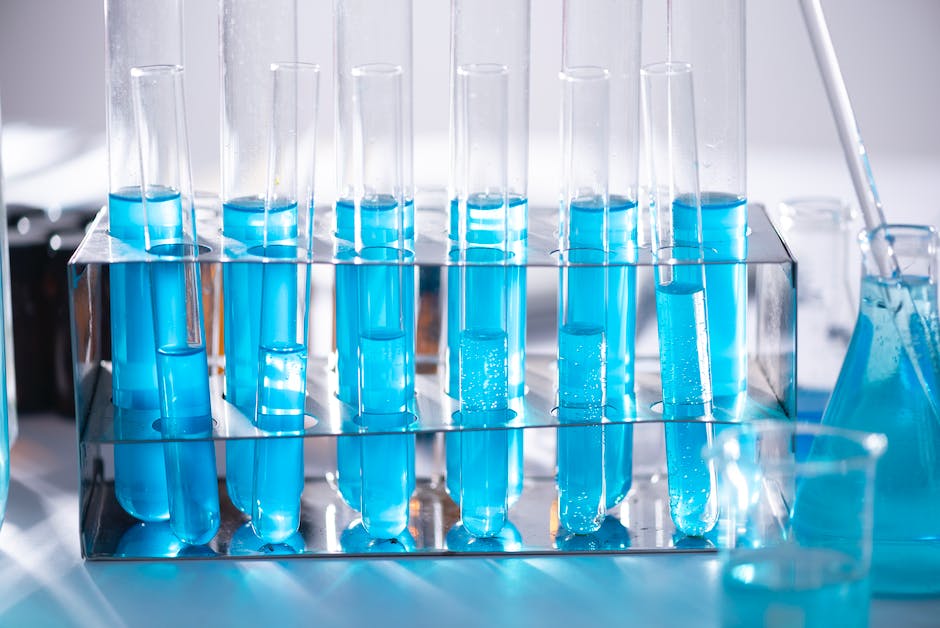Table of Contents
“Unlocking the Future: Biotechnology Breakthroughs for Leaders”
Introduction
“Biotechnology Breakthroughs: What Leaders Need to Know” is a comprehensive guide that aims to provide leaders with essential knowledge about the latest advancements in biotechnology. This introduction will give an overview of the book, highlighting its significance in helping leaders navigate the rapidly evolving field of biotechnology and understand its potential impact on various industries.
The Role of Biotechnology in Healthcare Advancements

Biotechnology Breakthroughs: What Leaders Need to Know
The Role of Biotechnology in Healthcare Advancements
In recent years, biotechnology has emerged as a powerful tool in the field of healthcare. It has revolutionized the way we diagnose, treat, and prevent diseases. As leaders in various industries, it is crucial to understand the role of biotechnology in healthcare advancements and its potential impact on our organizations.
One of the key areas where biotechnology has made significant contributions is in the development of new drugs and therapies. Through the use of biotechnology, scientists are now able to identify and target specific genes or proteins that play a role in diseases. This targeted approach has led to the development of highly effective drugs that can treat previously untreatable conditions.
For example, biotechnology has played a pivotal role in the development of personalized medicine. By analyzing an individual’s genetic makeup, scientists can now tailor treatments to a patient’s specific needs. This has led to improved outcomes and reduced side effects, as treatments are no longer a one-size-fits-all approach.
Furthermore, biotechnology has also revolutionized the field of diagnostics. Traditional diagnostic methods often rely on invasive procedures and can take days or even weeks to provide results. With biotechnology, diagnostic tests can now be performed quickly and accurately, allowing for early detection and intervention.
One such breakthrough in diagnostics is the development of rapid diagnostic tests for infectious diseases. These tests can detect the presence of pathogens within minutes, enabling healthcare providers to make timely treatment decisions. This has been particularly crucial in the case of outbreaks, where rapid identification and containment are essential.
In addition to drug development and diagnostics, biotechnology has also played a significant role in the field of regenerative medicine. Through the use of stem cells, scientists are now able to regenerate damaged tissues and organs. This has the potential to revolutionize the treatment of conditions such as heart disease, spinal cord injuries, and diabetes.
Moreover, biotechnology has also paved the way for the development of innovative medical devices. From advanced prosthetics to implantable devices, biotechnology has enabled the creation of cutting-edge technologies that enhance the quality of life for patients.
For instance, the development of bioengineered organs has the potential to address the shortage of donor organs for transplantation. By growing organs in the lab using a patient’s own cells, the risk of rejection is significantly reduced, and the waiting time for a transplant is minimized.
As leaders, it is essential to recognize the potential of biotechnology in healthcare advancements and its implications for our organizations. By staying informed about the latest breakthroughs and trends in biotechnology, we can identify opportunities for collaboration and innovation.
Furthermore, it is crucial to invest in research and development in biotechnology to stay competitive in the rapidly evolving healthcare landscape. By fostering a culture of innovation and embracing biotechnology, organizations can position themselves as leaders in delivering cutting-edge healthcare solutions.
In conclusion, biotechnology has emerged as a game-changer in the field of healthcare. From drug development to diagnostics, regenerative medicine, and medical devices, biotechnology has revolutionized the way we approach healthcare. As leaders, it is imperative to understand the role of biotechnology in healthcare advancements and leverage its potential to drive innovation and improve patient outcomes.
Biotechnology Innovations in Agriculture and Food Production
Biotechnology Innovations in Agriculture and Food Production
Biotechnology has revolutionized various industries, and one area where it has made significant strides is in agriculture and food production. With the world’s population projected to reach 9.7 billion by 2050, the need for sustainable and efficient food production has never been more critical. Biotechnology offers promising solutions to address this challenge, with innovations that enhance crop yields, improve nutritional content, and reduce environmental impact.
One of the most notable biotechnology breakthroughs in agriculture is the development of genetically modified organisms (GMOs). GMOs are created by introducing specific genes into the DNA of plants or animals, resulting in desirable traits such as resistance to pests, diseases, or herbicides. This technology has allowed farmers to grow crops with higher yields and reduced reliance on chemical pesticides. For example, genetically modified corn and soybeans have become widespread in many countries, contributing to increased productivity and profitability for farmers.
Another area where biotechnology has made significant advancements is in the development of biofortified crops. Biofortification involves enhancing the nutritional content of crops by increasing the levels of essential vitamins and minerals. This approach has the potential to address widespread nutrient deficiencies, particularly in developing countries. For instance, biofortified rice, enriched with vitamin A, has been developed to combat vitamin A deficiency, a leading cause of blindness in children. Similarly, biofortified crops like iron-fortified beans and zinc-fortified wheat are being developed to tackle iron and zinc deficiencies, which can lead to impaired cognitive development and increased susceptibility to diseases.
Biotechnology has also played a crucial role in improving crop resilience to environmental stresses. Climate change poses significant challenges to agriculture, with rising temperatures, droughts, and extreme weather events becoming more frequent. Through biotechnology, scientists have developed crops that are more tolerant to these stresses. For example, drought-tolerant maize varieties have been developed using genetic engineering techniques, enabling farmers to maintain productivity even in water-limited conditions. Similarly, heat-tolerant wheat varieties have been developed to withstand high temperatures, ensuring stable yields in regions prone to heatwaves.
In addition to crop improvements, biotechnology has also revolutionized food production processes. One notable innovation is the use of enzymes in food processing. Enzymes are natural catalysts that accelerate chemical reactions, and they have been widely used in the production of various food products. For instance, enzymes are used in the production of cheese, bread, and beer, where they enhance flavor, texture, and shelf life. Enzymes have also been employed in the production of alternative protein sources, such as plant-based meat substitutes, enabling the creation of more sustainable and environmentally friendly food options.
While biotechnology offers immense potential for improving agriculture and food production, it is not without its challenges. Public perception and acceptance of GMOs, for instance, vary across different regions and cultures. Regulatory frameworks also play a crucial role in ensuring the safety and ethical use of biotechnology in agriculture. Therefore, it is essential for leaders in the agricultural sector to stay informed about the latest biotechnology breakthroughs, engage in dialogue with stakeholders, and navigate the complex landscape of regulations and public opinion.
In conclusion, biotechnology has brought about significant innovations in agriculture and food production. From genetically modified crops to biofortification and improved crop resilience, biotechnology offers promising solutions to address the challenges of feeding a growing global population sustainably. Additionally, the use of enzymes in food processing has revolutionized the production of various food products. However, it is crucial for leaders to navigate the challenges surrounding public perception and regulatory frameworks to ensure the responsible and ethical use of biotechnology in agriculture. By staying informed and engaging in dialogue, leaders can harness the potential of biotechnology to create a more sustainable and food-secure future.
Biotechnology’s Impact on Environmental Sustainability
Biotechnology has emerged as a powerful tool in addressing the challenges of environmental sustainability. With its ability to harness the power of living organisms, biotechnology offers innovative solutions to some of the most pressing environmental issues we face today. From reducing pollution to improving resource efficiency, biotechnology breakthroughs are transforming the way we approach environmental sustainability.
One area where biotechnology has made significant strides is in waste management. Traditional waste treatment methods often fall short in effectively breaking down and disposing of various types of waste. Biotechnology, however, offers a more efficient and environmentally friendly alternative. Through the use of microorganisms, biotechnology can break down organic waste materials, such as food scraps and agricultural residues, into valuable products like biofuels and bioplastics. This not only reduces the amount of waste sent to landfills but also provides a sustainable source of energy and materials.
Another area where biotechnology is making a difference is in the field of agriculture. As the global population continues to grow, the demand for food is increasing at an unprecedented rate. Biotechnology offers solutions to improve crop yields, enhance nutritional content, and reduce the need for harmful pesticides and fertilizers. Through genetic engineering, scientists can develop crops that are more resistant to pests and diseases, as well as crops that require less water and nutrients. These advancements not only contribute to food security but also help to preserve natural resources and protect the environment.
Biotechnology also plays a crucial role in the conservation of biodiversity. With the loss of habitats and the threat of extinction facing many species, biotechnology offers innovative approaches to conservation efforts. One such approach is the use of biobanking, where genetic material from endangered species is collected and stored for future use. This genetic material can be used to reintroduce species into their natural habitats or to enhance the genetic diversity of captive populations. Biotechnology also enables scientists to study and understand the genetic makeup of different species, providing valuable insights into their biology and potential conservation strategies.
In addition to waste management, agriculture, and biodiversity conservation, biotechnology is also contributing to the development of sustainable energy sources. Traditional energy sources, such as fossil fuels, are not only finite but also contribute to climate change and environmental degradation. Biotechnology offers alternatives, such as biofuels and biogas, which are derived from renewable sources like plants and organic waste. These bio-based energy sources have the potential to reduce greenhouse gas emissions and mitigate the impacts of climate change.
As leaders, it is essential to stay informed about the latest biotechnology breakthroughs and their implications for environmental sustainability. By understanding the potential of biotechnology, leaders can make informed decisions and support policies that promote its responsible and sustainable use. Collaboration between scientists, policymakers, and industry leaders is crucial in harnessing the full potential of biotechnology to address environmental challenges.
In conclusion, biotechnology is revolutionizing the way we approach environmental sustainability. From waste management to agriculture, biodiversity conservation, and energy production, biotechnology offers innovative solutions to some of the most pressing environmental issues we face today. As leaders, it is important to recognize the potential of biotechnology and support its responsible and sustainable use. By doing so, we can pave the way for a more sustainable and environmentally friendly future.
Ethical Considerations in Biotechnology Breakthroughs
Biotechnology breakthroughs have the potential to revolutionize various industries, from healthcare to agriculture. As leaders in these fields, it is crucial to understand the ethical considerations that come with these advancements. Ethical considerations play a significant role in determining the responsible and sustainable use of biotechnology, ensuring that the benefits outweigh any potential risks.
One of the primary ethical concerns in biotechnology breakthroughs is the issue of informed consent. Informed consent is the process of obtaining permission from individuals before using their genetic information or biological samples for research purposes. This is particularly important when it comes to genetic testing and personalized medicine. Leaders must ensure that individuals fully understand the implications of sharing their genetic information and have the autonomy to make informed decisions about their participation.
Another ethical consideration is the potential for discrimination based on genetic information. As biotechnology advances, it becomes easier to identify genetic predispositions to certain diseases or conditions. While this information can be valuable for preventive measures and personalized treatments, it also raises concerns about privacy and discrimination. Leaders must be aware of the legal and ethical frameworks in place to protect individuals from genetic discrimination and ensure that these safeguards are upheld.
The use of biotechnology in agriculture also raises ethical concerns. Genetically modified organisms (GMOs) have been a topic of debate for years. While GMOs have the potential to increase crop yields and reduce the use of pesticides, there are concerns about their impact on the environment and human health. Leaders must consider the long-term effects of GMOs and weigh the potential benefits against the risks. Additionally, transparency and labeling of GMO products are essential to allow consumers to make informed choices.
The ethical considerations in biotechnology breakthroughs also extend to the use of gene editing technologies such as CRISPR-Cas9. While these technologies hold immense promise for treating genetic diseases, they also raise ethical questions about the boundaries of genetic manipulation. Leaders must navigate the ethical landscape surrounding gene editing, ensuring that it is used responsibly and ethically. This includes considering the potential unintended consequences and the impact on future generations.
Furthermore, the global distribution of biotechnology breakthroughs raises ethical concerns about access and equity. While developed countries may have the resources to invest in and benefit from these advancements, developing countries may be left behind. Leaders must consider how to ensure equitable access to biotechnology breakthroughs, promoting global collaboration and addressing the potential for exacerbating existing inequalities.
In conclusion, ethical considerations are paramount in biotechnology breakthroughs. Leaders must navigate the complex ethical landscape to ensure responsible and sustainable use of these advancements. Informed consent, protection against discrimination, transparency in labeling, and equitable access are just a few of the ethical considerations that leaders need to be aware of. By addressing these concerns, leaders can harness the potential of biotechnology breakthroughs while upholding ethical standards and promoting the greater good.
Q&A
1. What are some recent biotechnology breakthroughs?
Some recent biotechnology breakthroughs include CRISPR gene editing, CAR-T cell therapy, and the development of mRNA vaccines.
2. How can biotechnology benefit various industries?
Biotechnology can benefit various industries by improving crop yields, developing new drugs and therapies, creating sustainable biofuels, and enhancing diagnostic tools.
3. What are the ethical considerations surrounding biotechnology?
Ethical considerations surrounding biotechnology include issues related to genetic engineering, privacy and data security, equitable access to biotechnological advancements, and potential environmental impacts.
4. How can leaders stay informed about biotechnology breakthroughs?
Leaders can stay informed about biotechnology breakthroughs by following reputable scientific journals, attending industry conferences and seminars, engaging with experts in the field, and fostering partnerships with biotechnology companies and research institutions.
Conclusion
In conclusion, “Biotechnology Breakthroughs: What Leaders Need to Know” is a crucial resource for leaders to stay informed about the latest advancements in biotechnology. It highlights the potential impact of biotechnology on various industries and provides insights into the ethical, legal, and regulatory considerations associated with these breakthroughs. By understanding the opportunities and challenges presented by biotechnology, leaders can make informed decisions and effectively navigate the rapidly evolving landscape of this field.




